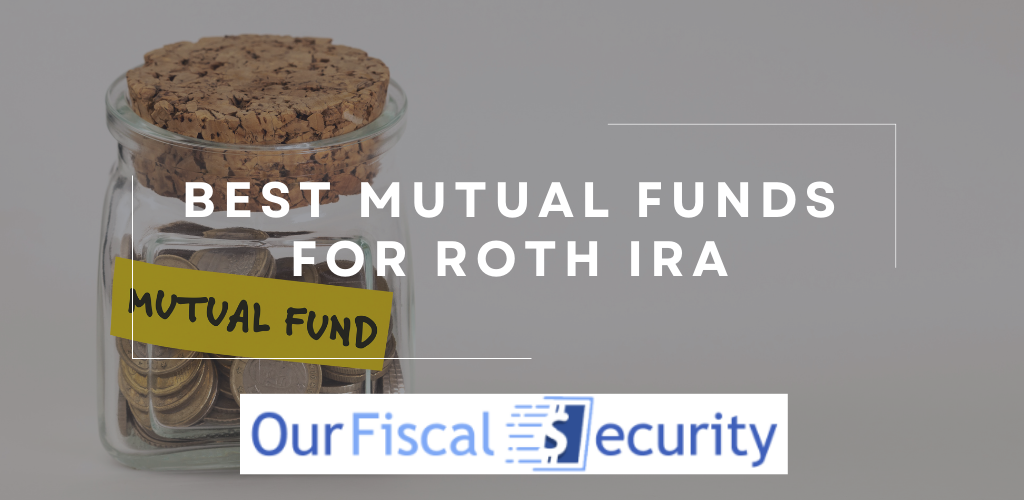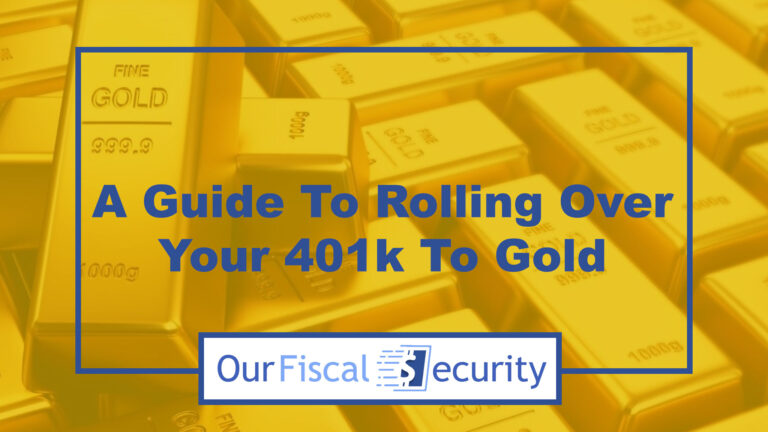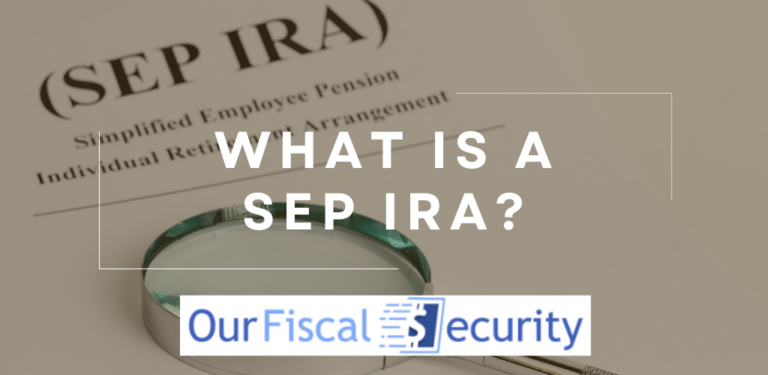Best Mutual Funds for Roth IRA
An Individual Retirement Account (IRA) is great for those wanting to make tax-free withdrawals when they retire.
Mutual funds are one of the most popular asset classes people invest in. If you’re interested in opening an account, you must understand how they work and how they interact with mutual funds.
If you’ve been searching: “What are the best mutual funds for Roth IRA?” you’ve come to the right place. This page covers Roth IRAs and mutual funds. By the time you’re finished reading, you’ll be ready to open the right account to cover your needs.
Understanding Roth IRA and Mutual Funds
Concept of Roth IRA
Roth IRAs allow investors to contribute after-tax dollars. This allows them to make tax-free withdrawals when they retire.
Benefits of Roth IRA
You can get many benefits from your Roth IRA, as long as you invest in the right mutual funds. Generally speaking, you’ll get the following benefits:
- Qualified withdrawals
- Tax-free income growth
- No income taxes for inherited accounts
- No mandatory withdrawals like in a traditional IRA
Understanding Mutual Funds
Mutual funds pool money from many investors. Said money is then used to buy different securities.
Types of Mutual Funds
You can consider the following four types of mutual funds:
- Bond Funds: They allow people to make short-term investments issued by U.S. governments and/or corporations, giving them higher returns.
- Stock Funds: They work with corporate stocks, which offer plenty of possibilities for investment returns.
- Target Date Funds: These are perfect for those who know when they’ll retire. Target date funds hold different investment classes besides regular stocks/bonds.
- Money Market Funds: Like bond funds, they allow people to make short-term investments. They may not generate such high incomes, though.
The Role of Mutual Funds in a Roth IRA
This section covers the way to reap the benefits of Roth IRA, but also its drawbacks.
Advantages of Investing in Mutual Funds for Roth IRA

Tax-free Growth
Roth IRAs work with after-tax contributions. In other words, you can make tax-free withdrawals, which is perfect if you think you’ll be in a higher tax bracket in the future.
In other accounts, you would have to pay dividends. Roth IRAs allow you to grow your dividends tax-free for as long as you consider it necessary.
Diversification Benefits
Diversification is key if you want to protect your portfolio. Through a Roth IRA, you can set up a long-term, buy-and-hold portfolio, which protects your money until you retire.
Potential for High Returns
The right Roth IRA investments can give you high returns. Thanks to the concept of “compounding growth,” you could get annual returns that exceed 10%.
Risks Associated with Mutual Funds in Roth IRA
Market Risk
Any assets you invest in for your Roth IRA are vulnerable to market swings. Not paying attention to market movements could affect your strategy and make you lose money.
Fund Manager Risk
Not working with a fund manager exposes you to mistakes and many different risks. These professionals are responsible for working toward your retirement goals.
Liquidity Risk
Not all assets offer high liquidity. Furthermore, Roth IRAs, don’t offer instant liquidity, which is something you find in regular savings and checking accounts.
Evaluating Mutual Funds for Roth IRA
A Roth IRA allows you to buy shares in different index funds/mutual funds, whether you do it through a brokerage account or another method.
Another thing to consider is that these IRAs have no minimum investment, which is great for those looking to start small with their contributions.
Here’s everything you should keep in mind before investing in mutual funds:
Importance of Fund Performance
You can track a fund’s performance by comparing stocks, specifically their sector and weight. The comparison will be to their indexes or benchmarks.
When you track a fund’s performance, you must consider the expense ratio, minimum investment, and other factors. Knowing how a fund is performing allows you to make a better decision in the end.
Role of Expense Ratio
An expense ratio is the annual cost of operating a specific mutual fund. In other words, it refers to any expenses that investors deal with. These include:
- Fund managers
- Legal fees
- Distribution fees
If you want lower fees, you should look for funds with lower expense ratios.
Fund Manager’s Track Record
The fund managers you choose must have a solid reputation, especially if you’re dealing with high-yield bond funds. This will help you get the most out of your investment.
Fund’s Investment Strategy
You should make a great strategy before investing in your Roth IRA. Copying someone else’s strategy will likely make you go against your own goals.
If you’re not sure of what to do, you should consider talking to a professional who can help you determine your risk tolerance and goals.
Top Performing Mutual Funds for Roth IRA
Here’s a list of the best mutual funds you can invest in at the moment. We also included a short overview of its price and other useful information.
Vanguard Total Stock Market ETF (VTI)
VTI is known for having low expenses, which minimizes net tracking errors. Likewise, you can expect small-, mid-, and large-cap equity, meaning you get plenty of options across different value or growth styles.
This mutual fund works with a passively managed, index-sampling strategy.
- Expense Ratio: 0.3%
- Current Price: $240.99
- NAV: $240.98
- Inception Date: May 24, 2001
Vanguard Total Bond Market ETF (BND)
BND offers a lot of income potential while managing risk through diversification. This mutual fund tracks the performance of a market-weighted bond index.
- Expense Ratio: 0.03%
- Current Price: $72.48
- NAV: $72.48
- Inception Date: April 3, 2007
The Vanguard REIT Index ETF (VNQ)
VNQ offers high-income potential, as it invests in stocks issued by real property.
- Expense Ratio: 0.12%
- Current Price: $84.12
- NAV: $84.13
- Inception Date: September 23, 2004
Vanguard 500 Index Fund Admiral Shares (VFIAX)
VFIAX offers exposure to 500 prominent companies in the U.S. These companies work in different industries, offering plenty of options for investors.
- Expense Ratio: 0.04%
- Current Price: $449.40
- NAV: $449.40
- Inception Date: November 13, 2000
Vanguard Wellesley Income Fund Investor Shares (VWINX)
VWINX gives you the option to invest in different bonds and stocks. It’s one of the oldest mutual funds on the list.
- Expense Ratio: 0.23%
- Current Price: $24.57
- NAV: $24.57
- Inception Date: July 1, 1970
Invesco NASDAQ 100 ETF (QQQM)
QQQM is known for having securities from many large domestic and international non-financial companies, which are listed on NASDAQ.
- Expense Ratio: 0.15%
- Current Price: $174.29
- NAV: $175.26
- Inception Date: October 13, 2020
Invesco Zacks Multi-Asset Income ETF (CVY)
CVY also offers exposure to several domestic and international companies. These include Real Estate Investment Trusts (REITs), American Depositary Receipts (ADRs) paying dividends, U.S.-listed common stocks, and more.
- Expense Ratio: 1.06%
- Current Price: $23.43
- NAV: $23.44
- Inception Date: September 21, 2006
iShares Core High Dividend ETF (HDV)
Like CVY, HDV tracks indexes that include high-dividend-paying equities in the United States.
- Expense Ratio: 0.08%
- Current Price: $102.39
- NAV: $102.41
- Inception Date: March 29, 2011
iShares Cohen & Steers REIT ETF (ICF)
ICF tracks indexes that work with REITs, making it slightly different from the previous mutual fund.
- Expense Ratio: 0.33%
- Current Price: $56.01
- NAV: $56.98
- Inception Date: January 29, 2001
Avantis U.S. Small Cap Value ETF (AVUV)
AVUV offers exposure to small-cap companies in the United States. Due to its nature, you could increase your expected returns with this mutual fund.
- Expense Ratio: 0.25%
- Current Price: $87.56
- NAV: $87.54
- Inception Date: September 24, 2019
Comparing Mutual Funds and ETFs for Roth IRA

Key Differences Between Mutual Funds and ETFs
- ETF prices vary from investor to investor. Those who invest in a mutual fund will get the same price.
- ETFs tend to involve passive investments. Mutual funds are actively handled through a manager.
- ETFs don’t tend to generate many capital gains compared to mutual funds due to their low turnover rate.
- Mutual funds often ask for a flat fee before investing. This doesn’t happen with ETFs.
Pros and Cons of Investing in Mutual Funds vs ETFs
Pros of Mutual Funds
- Great pricing
- Portfolio diversification
- Safety and dividend potential for the investor
Cons of Mutual Funds
- High expense ratios with some funds
- Potential issues when choosing a reputable fund manager
- Tax inefficiency
Pros of ETFs
- Tax efficiency
- Portfolio diversification
- Lower fees and premiums
Cons of ETFs
- Low dividend yields
- Volatility
How to Choose the Best Mutual Funds for Your Roth IRA
Factors to Consider When Choosing Mutual Funds
Risk Tolerance
You must assess how much risk you’re willing to take. Generally speaking, you should buy and hold investments that could generate taxable income otherwise.
Talking to a financial advisor is often the best option to address this issue.
Investment Goals
Set goals that align with what you want. Try not to copy someone else’s strategy, as they may not have the same interests as you in mind.
Time Horizon
You can hold your investments for as much time as you want. Depending on the “time horizon” you have in mind, you could be more or less aggressive with your portfolio.
Choose an option that allows you to protect your investments without much stress.
Importance of Diversification in Your Roth IRA Portfolio
Asset Allocation Strategies
Diversification involves investing in different asset classes. When you create a strategy that involves efficient asset allocation, you can protect your retirement funds.
In the investment industry, you’ll likely hear the phrase “Don’t put all your eggs in one basket.” This applies to Roth IRAs too.
You can choose different types of assets depending on how much you’re willing to risk.
There are several effective methods in executing diversification strategies, which include:
- Stocks/Equities: They represent shares of ownership, which are issued by publicly traded companies. Most of these are exchanged on NASDAQ or other related stock exchanges. As the price of the share increases, you could profit, and vice versa.
- Bonds: These are fixed-income investments that pay returns in the form of interest. Bonds are often considered low-risk investments.
- Cash: Cash is one of the most liquid assets you can find. You can access cash easily compared to other assets, which gives it an advantage.
- Forex/Futures: These are financial derivatives, which are financial instruments based on an underlying asset.
- Real Estate: Physical assets offer more protection against inflation. Since they’re tangible assets, it’s easier for them to retain their value even during times of financial uncertainty.

Benefits of Diversification
As mentioned, diversifying your portfolio is the best option to consider if you want to make the most profits out of your retirement funds. Not only will you be able to improve your returns, but you could also access more financial opportunities that you wouldn’t get with other accounts.
Allocating assets correctly allows you to be smarter with your investments and reduce risks. If one of your assets drops in price, you can still rely on the others. Of course, this will involve more research on your part, but the benefits will be worth it.
Frequently Asked Questions
What Are the Best Mutual Funds for a Roth IRA?
There’s no “best” option, as everything depends on your goals and preferences. The right mutual fund is the one that aligns with your expectations and has a great performance as well.
Can You Day Trade in a Roth IRA?
Yes, you can day-trade in a Roth IRA.
What Is the Cost to Open a Vanguard Roth IRA?
Opening a Vanguard Roth IRA is free.
Does Vanguard Offer Roth and Traditional IRAs?
Yes, you can open a Roth or Traditional retirement account with Vanguard.
What Index Fund Should I Invest in my Roth IRA?
It depends on your needs. Choose an option based on your investment goals or risk tolerance. Financial advisors can help you decide.
Conclusion
Roth IRAs are great for many investors, especially those who predict they’ll be in a higher tax bracket in the future. By making the right investment in a mutual fund, you will see positive benefits like efficient risk management, diversification, and more.
If you’re having more concerns about your retirement account, you could seek advice from a Certified Financial Planner or another related professional.






